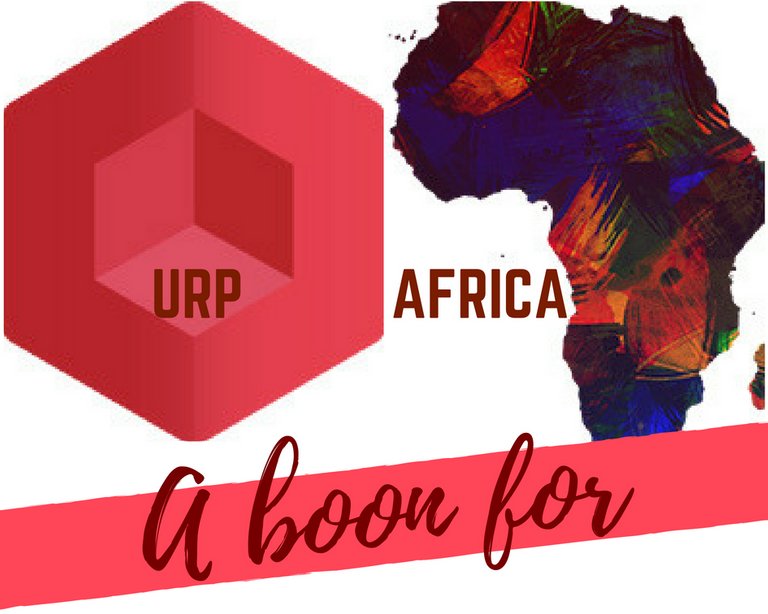Africa is one of the most populous and dynamic continents in the world. It is gradually catching up with the technological gap to meet the challenges of the modern world. To achieve this, Africa must no longer be on the fringe of technological innovation, for this continent abounds, apart from its raw materials, with enormous potentialities that are still under-exploited. Since the 2010s, with the rise of some technologies such as Blockchain, the African continent has appeared as an excellent candidate to experiment with use cases in several sectors of activity, particularly in the marketing and retail sectors. It is in these areas that the Universal Reward Protocol could play a major role by taking them to the next level.
1. Better integrating informal sector businesses into the digital economy
Informal sector businesses in Africa account for more than 66% of jobs according to a study by the International Labour Organization. But the problem is that the africans states can not integrate the economic benefits of the sector into the formal economy. The reason is that some businesses don't pay taxes in the state. Also, the vast majority of businesses in this sector don't have the means to be present online; they are forced to go through e-commerce websites.
The Universal Reward Protocol associated with e-commerce platforms, whose retailers are businesses in the informal sector, would increase their online and grow their customer base. So, thanks to an API linked to the URP web application, these retailers will have the opportunity to create data collection campaigns on e-commerce platform visitors.
When a user will visit one of these platforms associated with the Universal Reward Protocol, a message in the form of a charter informing him that he can earn money, if he agrees to participate in a data gathering campaign on purchasing behavior, will be sent to him. If the visitor in question accepts the proposal, they will be redirected to the URP mobile application download page.
Whenas the e-commerce platform detects that the user has installed the application on his smartphone, a notification will be sent to him to launch the URP application from his phone. Once the application is launched, the user can browse the offers of retailers whose outlets are close to its geographical area by geolocation. After making his choice, he will now be able to complete the missions of the offer to receive his reward.
So that, when the customer will visit physically the store he has chose, the Dapp Occi will collect geolocation datas of the customer inside the store to establish the proof-of-visit.
2. Interfacing with the existing mobile payment system
The percentage of unbanked population in Africa is one of the highest in the world with an estimated rate of 80%. Nevertheless, thanks to the progress of mobile telephony, mobile-phone operators have had the good idea of integrating financial services into their traditional communication system.
Nowadays, mobile money transfer was experiencing a remarkable development on the continent with an estimated transaction volume of 1.2 billion for sub-Saharan Africa and 32 million for North and East Africa in 2017 according a report of GSMA.
However, this mobile payment system is struggling to achieve the same success in e-commerce. Thanks to the URP mobile app, African shoppers could transfer their URP tokens to their mobile payment accounts by converting them directly into their local currency and vice versa.
The mobile-phone operator Orange, has set up a debit card that is linked to the mobile payment account. If the Universal Reward Protocol can be associated with the mobile operators, their customers having the URP mobile application installed on their smartphone, will be able to withdraw their URP tokens converted beforehand in the local currency (or a currency such as the USD) and transfer them directly to their debit card linked to their mobile payment account. As result, they can withdraw theur money in an ATM or in a mobile banking agency.
Conclusion
URP is a protocol that aspires to revolutionize marketing and retail. To achieve this goal, the protocol should no be limited to only a certain category of so-called "developed" countries, nor to a particular type of stores such as shopping centers, but must extend wherever a commercial activity takes place to unleash its full potential. For this, Africa represents a relatively virgin area that the protocol can exploit to develop the retail trade by taking it to a new dimension.
This article was created in exchange for a potential token reward through Bounty0x

Congratulations @fiderlet! You have completed the following achievement on the Steem blockchain and have been rewarded with new badge(s) :
Click here to view your Board of Honor
If you no longer want to receive notifications, reply to this comment with the word
STOPDo not miss the last post from @steemitboard:
Congratulations @fiderlet! You received a personal award!
Click here to view your Board of Honor
Congratulations @fiderlet! You received a personal award!
You can view your badges on your Steem Board and compare to others on the Steem Ranking
Vote for @Steemitboard as a witness to get one more award and increased upvotes!